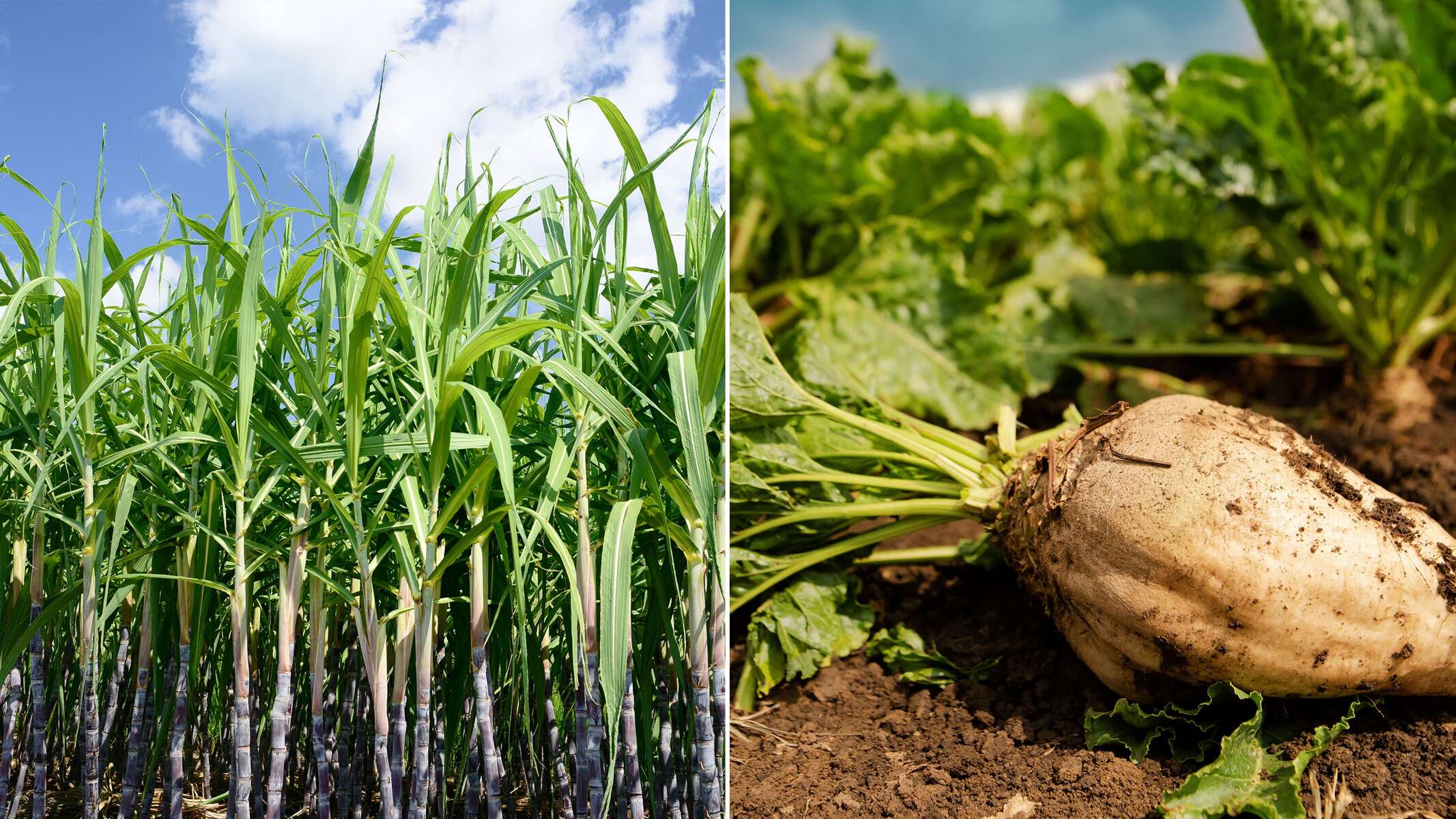Sugar beet vs sugar cane: Financial aspects in the worldwide sugar market
The Great Argument: Sugar Beet Vs Sugar Cane - Which Is the Superior Option for Sugar?
The discussion over sugar beet versus sugar cane as the preferred sugar includes numerous vital aspects. Each offers distinct benefits and obstacles pertaining to manufacturing, flavor, and health implications. While sugar beet may appeal to those focusing on sustainability, sugar cane has its very own social and culinary relevance. As consumers come to be extra mindful of their options, the question continues to be: which sugar absolutely attracts attention in today's market?
The Beginnings of Sugar Beet and Sugar Cane
Sugar cane has been cultivated for thousands of years, mainly in tropical regions, sugar beet emerged as a significant alternative in cooler climates throughout the 18th century. Sugar cane, indigenous to Southeast Asia, was first tamed around 8000 BCE and spread out internationally via profession and expedition. Its high sucrose material made it a beneficial plant, leading to substantial vineyards in regions like the Caribbean and Brazil.
In comparison, sugar beet was very first cultivated in the Mediterranean around the 18th century, particularly getting traction in Europe as a feedback to sugar cane shortages. The plant grows in temperate climates, making it ideal for regions with chillier climate. The discovery that sugar might be extracted from beet roots changed sweetener manufacturing, particularly throughout the Napoleonic Wars when profession restrictions restricted cane sugar accessibility. The surge of sugar beet cultivation noted a zero hour in the background of sweeteners, providing a regional source for lots of countries.
Production Procedures: From Field to Sweetener
The manufacturing processes of sugar beet and sugar cane disclose substantial differences in growing techniques, collecting methods, and improvement stages. Understanding these nuances is necessary for valuing exactly how each plant adds to the general sugar market. This contrast highlights the unique attributes and obstacles linked with both resources of sweet taste.

Farming Techniques Comparison
Growing strategies for sugar beet and sugar cane reveal distinct approaches that affect their production processes, from area prep work to last sugar extraction. Sugar beet farming generally includes raking and harrowing to produce a great seedbed, followed by seeding in rows to promote growth. This plant take advantage of cooler climates and is frequently planted in springtime. On the other hand, sugar cane is normally planted in furrows with pre-sprouted cane pieces, needing a warm, tropical climate for optimal development. Cane fields are typically set out to handle water effectively, given its requirement for substantial irrigation. Both plants are taken care of with certain fertilizing and parasite control techniques customized to their development settings, impacting return top quality and effectiveness in sugar removal.

Collecting Techniques Discussed
Effective gathering methods for sugar beet and sugar cane play an important duty in assuring optimal return and high quality of the end product. Sugar beet gathering commonly employs mechanized origin farmers, which effectively root out the beets from the dirt and different them from the vegetation. This method minimizes damage to the beetroots and reduces labor expenses. On the other hand, sugar cane harvesting might use either manual work or equipment, depending upon the region and range of production. Mechanical harvesters reduced the cane at the base and often remove the fallen leaves, maximizing the process for bigger fields. Both methods call for cautious timing to guarantee the plants are harvested at peak sweet taste, affecting the quality of the last sweetener item.
Refinement Process Differences
While both sugar beet and sugar cane undertake strenuous improvement processes to change their raw types into useful sweeteners, the methods employed differ significantly. Sugar beet refinement starts with cleaning and slicing the beetroots right into slim cossettes, followed by diffusion, where hot water extracts sucrose. The resulting juice is after that purified, focused, and crystallized. In comparison, sugar cane handling includes squashing the stalks to extract juice, which is after that cleared up making use of lime and warm to get rid of pollutants. The cane juice is evaporated to develop syrup prior to formation. Ultimately, while both processes aim to generate white sugar, the distinct methods highlight the one-of-a-kind qualities of each resource and their effects for flavor and purity in the end product.
Nutritional Profiles: What remains in Your Sweetener?
The nutritional accounts of sugar beet and sugar cane existing distinct differences worth checking out. This comparison includes elements such as calorie content, mineral and vitamin visibility, and variations in glycemic index. Recognizing these elements can supply understandings right into exactly how each sugar continue reading this may influence overall wellness.
Calorie Material Contrast
Comprehending the calorie material of sugar beet and sugar cane is essential for those mindful of their dietary choices. Both sugar mostly are composed of sucrose, contributing a similar caloric value. Normally, sugar beet has about 387 calories per 100 grams, while sugar cane has about 390 calories per the same amount. The small distinction in calorie web content might not significantly effect most diet regimens; nonetheless, it is remarkable for those closely monitoring their caloric consumption. Furthermore, both sugar sources supply power but do not have important nutrients, making them largely sources of vacant calories. Individuals seeking healthier options may desire to take right into account these factors when selecting between sugar beet and sugar cane as their chosen sugar.
Mineral and Vitamin Web Content
Caloric material gives only a part of the image when assessing sugar beet and sugar cane. Both resources of look these up sugar vary substantially in their mineral and vitamin profiles. Sugar beets are extremely rich in essential nutrients, including potassium, magnesium, and iron. They additionally include percentages of vitamins such as B6 and folate, contributing to their dietary value. In contrast, sugar cane uses a various collection of advantages, containing calcium, phosphorus, and traces of B vitamins. While neither choice is a significant resource of vitamins and minerals compared to whole foods, sugar beetroots might have a slight edge because of their greater mineral web content. Ultimately, customers seeking dietary benefits from sugar must consider these differences in profiles.
Glycemic Index Distinctions
Glycemic index plays a vital function in reviewing just how various sweeteners impact blood sugar level degrees. Sugar beet and sugar cane show notable differences in their glycemic responses. Typically, sugar beet has a lower glycemic index compared to sugar cane, leading to a slower and steadier surge in blood sugar degrees after intake. This characteristic might make sugar beet a more suitable choice for individuals taking care of diabetes mellitus or those seeking to keep secure energy degrees. On the other hand, sugar cane tends to create a more rapid spike in blood sugar level, which could lead to quicker energy accidents. Understanding these differences is significant for consumers intending to make informed dietary selections pertaining to sugar and their influence on overall wellness.
Ecological Effect: Sustainability Considerations
While both sugar beet and sugar cane are necessary sources of sugar, their ecological impacts and sustainability factors to consider differ noticeably. Sugar beetroots, mainly grown in pleasant regions, usually need less water and can be grown in diverse climates. They additionally take advantage of plant rotation techniques, which boost soil health and wellness and decrease the demand for artificial plant foods. Extensive farming of sugar beets can lead to dirt depletion and pesticide usage.
In contrast, sugar cane grows in exotic environments and typically demands substantial water resources for irrigation (Sugar beet vs sugar cane). The monoculture nature of sugar cane farming can aggravate soil erosion and biodiversity loss. In addition, the burning of cane areas before harvest launches carbon exhausts and contributes to air contamination. Both crops face obstacles pertaining to climate change, but their varying growing techniques profoundly affect their overall sustainability accounts. The option in between sugar beet and sugar cane entails weighing these environmental impacts very carefully.
Taste and Culinary Uses: Which Sugar Reigns Supreme?
The option between sugar beet and sugar cane extends past ecological considerations to incorporate preference and culinary applications. Sugar beet, often perceived as having a slightly various flavor account, often tends to be much less wonderful than sugar cane. This refined difference can influence its usage in recipes, specifically in baked items where a neutral sweetness is wanted.
Conversely, sugar cane is celebrated for its distinct, rich, and much more complex flavor, making it a preferred option for drinks and desserts click this link - Sugar beet vs sugar cane. Its natural molasses material can enhance the deepness of tastes in various recipes
In food preparation, sugar cane's convenience beams through in marinates, lusters, and confections, while sugar beet is generally found in processed foods and sweeteners like granulated sugar. Eventually, the choice in between both sweeteners typically hinges on specific preference choices and details culinary applications, with each offering one-of-a-kind advantages in the kitchen area.
Wellness Effects: Sugar Beet Vs Sugar Cane
Both sugar beet and sugar cane have distinct health and wellness ramifications that can affect consumer choices. Sugar beet vs sugar cane. Sugar beet is often related to for its higher fiber material, which can assist digestive system wellness. In addition, it includes specific anti-oxidants that might add to general well-being. On the other hand, sugar cane is rich in nutrients such as calcium, potassium, and magnesium, offering some mineral benefits
Both sources mostly consist of sucrose, which can lead to comparable health issues when eaten excessively, such as excessive weight, diabetes, and heart illness. The processing methods also differ; sugar beet is usually refined much more intensively, possibly leading to a loss of specific nutrients. Consumers concerned about additives may prefer sugar cane, as it typically undergoes much less handling. Ultimately, recognizing these wellness ramifications can assist individuals towards making informed choices regarding their sweetener selections.
Customer Preferences: Patterns and Insights
Customer choices for sugar have actually progressed significantly in recent years, affected by health patterns, ecological worries, and nutritional selections. Enhanced recognition of the negative wellness impacts related to extreme sugar usage has led numerous customers to look for choices. This change has actually triggered an expanding passion in natural sugar, with sugar beet and sugar cane going to the leading edge of conversations.
Research indicates that consumers are increasingly preferring sugar beet because of its viewed ecological benefits, as it is often grown closer to refining plants, minimizing transport exhausts. On the other hand, sugar cane is typically linked with exotic regions and may lug assumptions of sustainability obstacles.

Frequently Asked Concerns
How Do Sugar Beet and Sugar Cane Affect Blood Sugar Degrees?
Sugar beet and sugar cane both include sucrose, which can elevate blood glucose degrees. The impact greatly depends upon specific metabolic process and usage amounts, but both resources contribute similarly to blood sugar reactions for the most part.
Which Sugar Is Better for Baking and Cooking?
When assessing sweeteners for baking and cooking, one must take into consideration structure, flavor, and moisture retention. Sugar beet and sugar cane both use special high qualities, with sugar cane frequently favored for its richer flavor profile in cooking applications.
Can Sugar Beet or Cane Be Made Use Of in Vegan Diets?
Both sugar beet and sugar cane can be used in vegan diet regimens. They are plant-derived sweeteners, making them appropriate for individuals looking for vegan-friendly choices without animal items, making sure honest options in their culinary practices.
What Are the Historic Uses of Sugar Beet and Cane?
Historically, sugar beet and cane worked as essential resources of sweetness, with cane cultivated in tropical regions and beet in pleasant areas. Both have actually been important to different societies, economies, and cooking customs throughout background.
Exist Any Type Of Alternatives to Sugar Beet and Cane?
Alternatives to sugar beet and cane include agave nectar, honey, syrup, and sweetening agents like aspartame and sucralose. These replacements offer differing tastes and health benefits, interesting varied dietary preferences and limitations.